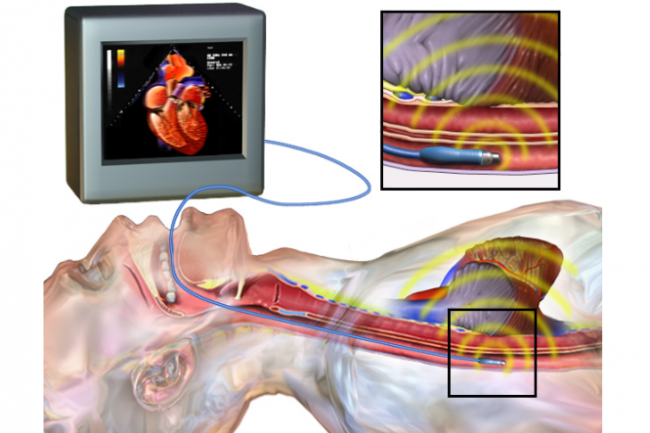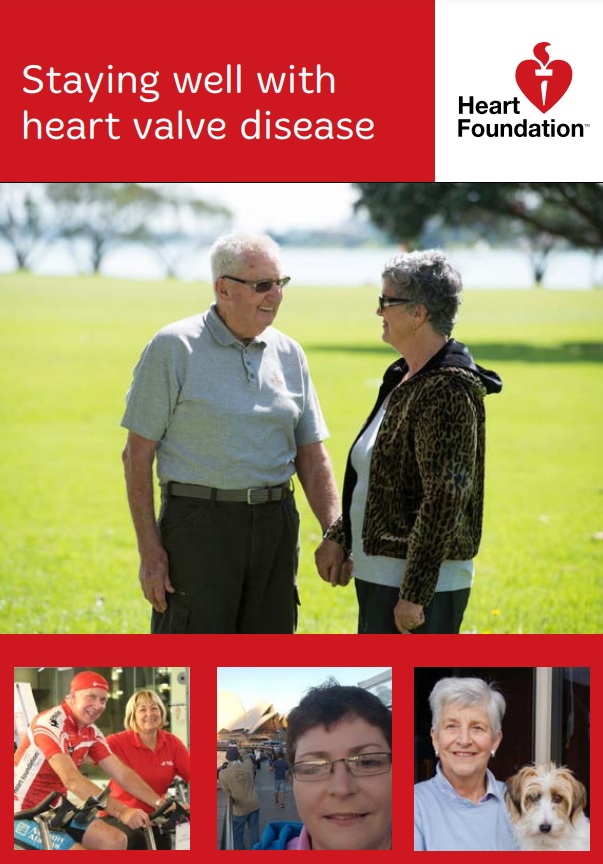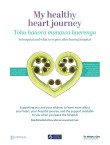A blood sample may be taken to help diagnose a condition or help monitor your progress if you have already been diagnosed with a heart problem. Blood tests can also be done to monitor the effects of any medication you might be taking.
Heart disease tests
Key points about heart disease tests
- There are several different tests and investigations used to diagnose heart disease (mate manawa).
- These include an ECG (electrocardiogram), echocardiogram, and coronary angiography.
- The tests your doctor chooses for you will depend on your risk of heart disease, your history of heart problems, and the symptoms you might have.

This involves wearing a blood pressure unit which takes your blood pressure and measures your heart rate regularly over a period of up to 24 hours.
This is an X-ray procedure to look at your heart's blood vessels. It's used to find blockages in your heart arteries. A long, thin flexible tube called a catheter is inserted into an artery and guided carefully to the part of the heart where the coronary arteries start. A special dye is injected through the catheter into your bloodstream. X-rays of the heart and coronary arteries are then taken. The dye highlights the coronary arteries and anywhere they are narrowed. The X-ray pictures are known as coronary angiograms.
An echocardiogram, or ECHO, is a scan used to look at the structure of your heart and how it's functioning. It's a non-invasive test using ultrasound (sound waves) to study how the heart and valves are working. This includes how blood flows through your heart valves (to see if they are normal, narrowed or leaking) and looking at the pumping chambers of your heart. A hand-held ultrasound device is placed on your chest over your heart and this records the sound waves. A moving image of your heart will be shown on a computer screen. This test will usually be carried out at a clinic or hospital. Read more about echocardiograms.
Specialised echocardiograms
There are 2 types of specialised ECHO tests:
- Dobutamine stress echocardiogram: This is used to find out how your heart works when you're exercising. Read more about dobutamine stress echocardiograms.(external link)
- Transoesophageal echocardiogram (TOE): This is a special type of echocardiogram done when more detailed pictures of your heart functioning are needed. Pictures of your heart are taken by inserting a flexible tube with a small ultrasound device into your oesophagus – the food pipe connecting your throat to your stomach. Read more about transoesophageal echocardiograms.(external link)
 I
I
Image credit: Bruce Blaus Creative Commons
The ECG is the most common test for heart conditions. Every time the heart beats, natural electrical currents can be picked up by sensors placed on the skin of your chest, arms and legs. An electrocardiogram machine records your heart's rhythm onto paper to see whether it's beating too fast or too slowly. An ECG can also pick up whether you've had a heart attack or not. It's a simple, painless test that takes about 10 minutes and is carried out while you're lying in a comfortable position.
Specialised electrocardiograms
- An exercise tolerance test (ETT) can show how your heart copes under stress. It involves 2 ECG scans, 1 while you are exercising (usually walking on a treadmill) and 1 while you're resting. Some heart issues only show up when your heart is having to work harder. Read more about exercise tolerance tests.(external link)
- A cardiac Holter monitoring test is used to identify any heart rhythm problems. The Holter monitor is a small, portable ECG machine worn at your waist for 1–2 days to record your heart's rhythm while you go about your daily activities. This test can help detect irregular heartbeats that aren't found during a regular (10 minute) ECG test. Read more about cardiac Holter monitoring.(external link)
- Event monitoring is used to record your heartbeat when you start to experience symptoms like dizziness, blackouts, chest pain or palpitations. Sensors are attached to your chest and wires link them to a small portable monitor. When you experience dizziness or pain you press a button and the monitor starts recording your heartbeat. You can write down what was happening for you when the pain, dizziness or palpitations were happening to help with diagnosing what’s wrong. Read more about event monitoring.(external link)
Your cardiologist might refer you for an electrophysiology study if you have an abnormal heart rhythm or palpitations. Similar to angiography, fine tubes called electrode catheters are introduced through a vein and/or artery, usually in the groin, and guided up to your heart. There they stimulate your heart and record its electrical activity.
These tests are used to see how well blood flows through your heart muscle. For example, after a heart attack they might be done to find any areas of damaged heart muscle. Dye is injected to highlight the blood vessels in your heart and then a special type of camera detects the dye and takes 2 sets of images of your heart – one when you're resting and the other when you're exercising. The images are compared to see how the blood flow to your heart changes. Read more about myocardial perfusion scans.(external link)
If you've had episodes of fainting (or light-headedness or dizziness), a tilt table test is used to investigate whether these could be related to your heart or blood pressure. For the test you lie on a special table, which can be angled to have you lying down or standing up. A heart rate and blood pressure monitor will record how your body responds to changes in position. During the test you may have an intravenous (IV) needle inserted in your arm so you can be given medication if needed.
Staying well with heart valve disease(external link) Heart Foundation, NZ, 2020
Living well after a heart attack(external link) Heart Foundation of NZ, 2020
My healthy heart journey – Tohu hauora manawa haerenga [PDF, 5 MB] Te Whatu Ora and Ministry of Health, NZ, 2023
Apps
Blood pressure apps
Heart failure apps
Heart rate apps
First aid and emergency apps
References
- Heart tests(external link) Heart Foundation, NZ
- Heart disease diagnosis(external link) Mayo Clinic, US, 2022
- Myocardial perfusion scan, stress(external link) Johns Hopkins Medical, US
- Coronary heart disease diagnosis(external link) NHS, UK, 2020
Brochures

Heart Foundation, NZ, 2020

My healthy heart journey – Tohu hauora manawa haerenga Te Whatu Ora and Ministry of Health, NZ, 2023

Heart Foundation of NZ, 2020
Credits: Healthify editorial team. Healthify is brought to you by Health Navigator Charitable Trust.
Reviewed by: Associate Professor Sue Wells, Public Health Physician, University of Auckland
Last reviewed:
Page last updated:





